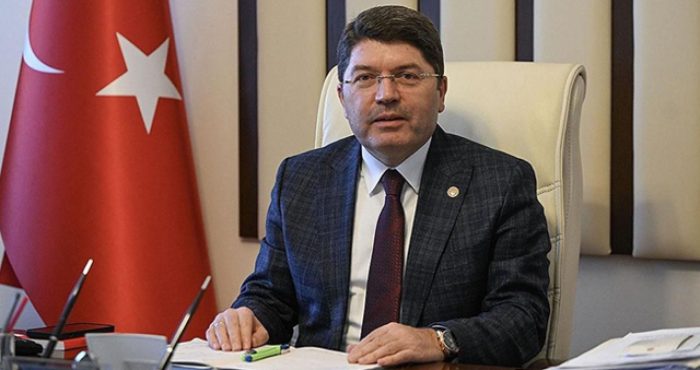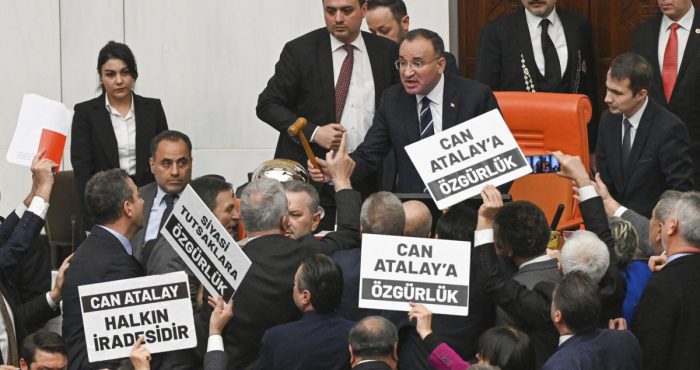Some information has come to the attention of the public that more than one person was involved in the assassination of Sinan Ateş; that the duty to protect the lives of the public, which is assigned to the police by Article 1 of Law No. 2559, may have been disregarded; and that the assassination could have been prevented before it was carried out. Both of these crimes need to be thoroughly investigated and illuminated in the finest detail, and those who are responsible or involved in any capacity need to be brought to justice.
Yet in order to “illuminate the crime of assassination,” the public prosecutor is dependent on the police, who have failed to fulfill their duty under paragraph 2(a) of Law No. 2599 to “prevent the crime of assassination before it is committed.” In order to investigate the possibility of negligence or willful violation of duty, police officers must obtain an investigation permit from their administrative superiors.
If there were a court martial
Article 2 of Law No. 2599 authorizes the police to carry out the investigation procedures prescribed in the Code of Criminal Procedure in relation to a crime committed. The police execute the orders of the public prosecutor regarding judicial duties. Pursuant to Article 10 (the final article) of Law No. 3201 on Police Organization and Article 165 of the Criminal Procedure Code, the provisions of the Criminal Procedure Code apply to the police due to their judicial duties. Police officers are subject to the orders of their superiors in relation to services other than their judicial duties.
Therefore, the police, while they are subject to the orders of the public prosecutor in an assassination investigation, remain responsible to their administrative superior in other matters. Police officers who find that their administrative superiors have neglected or willfully violated their duties while performing their judicial law enforcement duties will be caught between the public prosecutor and these administrative superiors. Such a possibility justifies the establishment of a judicial law enforcement agency independent of the police organization—a court martial.
Why can’t such a judicial law enforcement agency be established?
The judicial law enforcement agency that the Six-Party Talks promised to establish in the Joint Policy Memorandum of Understanding (JPMOU) is not meant to prevent crimes that have not yet been committed or that are still being conceived, but only to more effectively investigate crimes that have already been committed and are within the jurisdiction of the judicial authorities. If the Table of Six wins the elections and fulfills this promise, with a judicial law enforcement agency at its disposal, it will be possible for the crime of assassination to be independently investigated, without relying on the police.
The establishment of a judicial law enforcement agency has been discussed for nearly 50 years. Although it has been promised several times during this period, it has not been realized so far. This is due to the fact that the judiciary itself is not accountable to the law, having become a privileged class before 1980.
Imagine what kind of persecution we will face if public prosecutors, who would have immediately responded to a two-line invitation letter, are given the power of judicial law enforcement. It will enable them to have people such as Metin Akpınar or Metin Uca, or any businessperson staying in a hotel in another city, arrested at dawn by police officers, to delegate the taking of statements to the police instead of taking them themselves, and to allow cases to drag on for years, despite the fact that there is no basis in law for any of this.
The judiciary must be accountable
Can you imagine how much damage a judicial organization would cause to the citizen, to the law and to the belief in justice, if its own compliance with the rule of law is itself questionable, if it does not examine the decisions of its colleagues from the perspective of the citizen but instead makes decisions that sustain their mistakes based on the mistaken understanding that “the arm is broken, the injury remains in the flesh”?
To cut a long story short, those who dream that if a court martial were established in Türkiye, a sergeant-major under the command of the court would go to the president’s office or home to carry out judicial tasks in the most effective way, and that everything would be rosy, as in the US, are wrong.
Putting a court martial at the disposal of the judiciary without first ensuring that it provides quality services to citizens, works effectively and efficiently, and respects the rule of law to the highest degree is like putting a gun in the hands of a bully with a knife.
Until such time as the judicial power is exercised in the interest of the citizen, in a safe and accountable manner, it is a pipe dream to establish a court martial and to think that it can effectively investigate assassinations and bring them to light in a short period of time.




